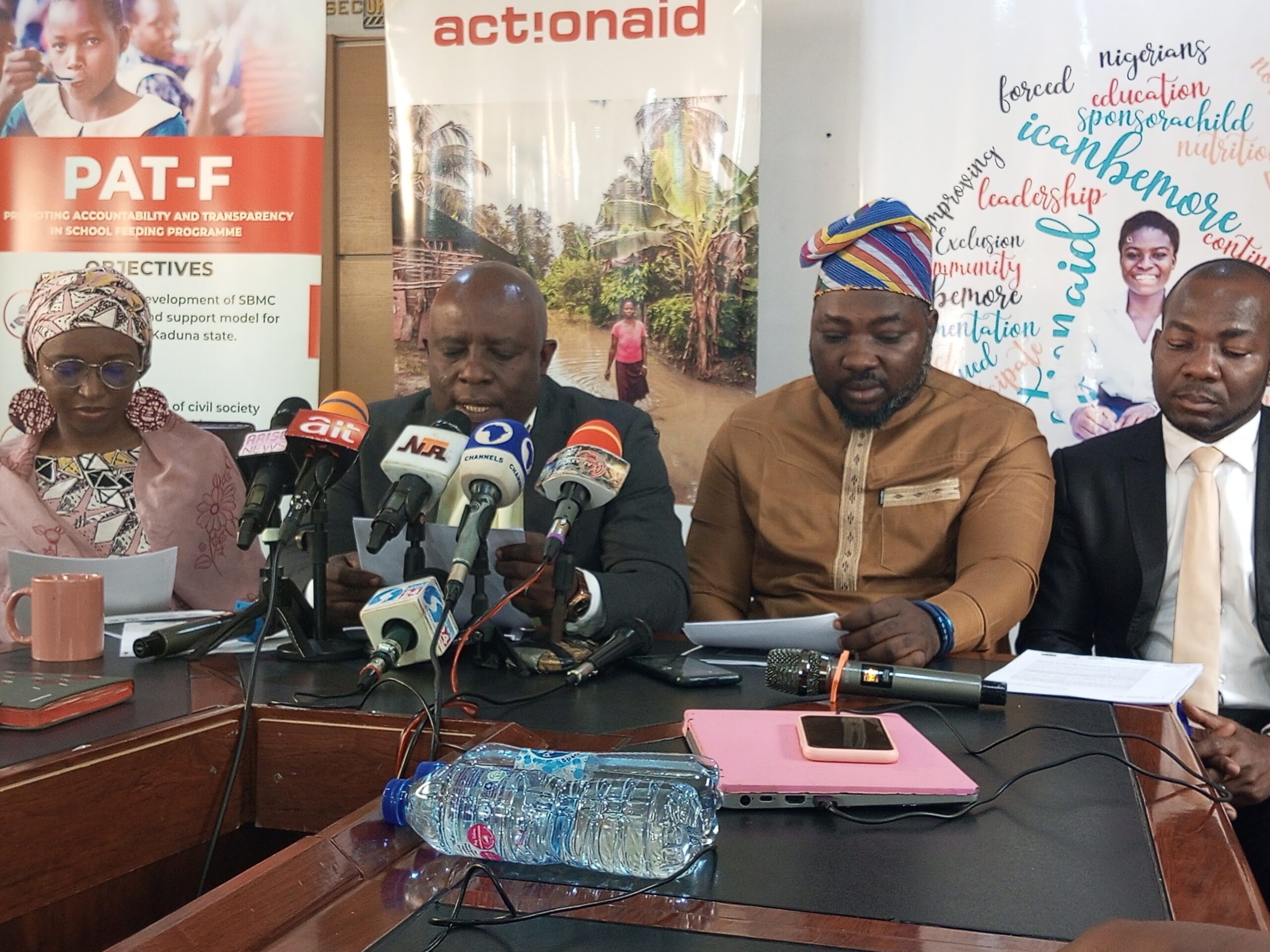Abubakar Yunusa
The Tertiary Education Trust Fund (TETFund) has reiterated its call for the upward review of the education tax rate to three per cent (3%).
TETFund Executive Secretary, Mr. Sunny Echono, made the call in Port Harcourt, while speaking at the 2022 joint interactive forum organised by the Fund and the Federal Inland Revenue Service (FIRS).
Echono, who was represented by the Director, Strategy, Planning and Development, Mr Irene Erivwo, said the need to boost education tax collection for the purpose of advancing tertiary education in Nigeria, is further underscored by recent successes recorded in it’s various intervention projects and programmes in beneficiary institutions.
He said: “The need to boost education tax collection for the purpose of advancing tertiary education in Nigeria, is further underscored by recent successes that have been recorded through in the various intervention projects and programmes delivered by the Fund in beneficiary institutions.
“This has warranted as well as justified the call for a further upward review of the education tax rate to 3 percent. This is also in tandem with goals of different economies, which holds true not just for Nigeria but for most of Africa, where governments were already struggling to bring in adequate tax revenues before the pandemic and are presently faced with an even more precarious situation as their debts become more difficult to manage.
“Further to this, it is imperative to ensure that the education tax net expands to cover as much as is possible so as to further improve the tertiary education sector. It is also important to consistently initiate and sustain proactive measures such as auditing.”
In his remarks, FIRS Chairman, Mr Muhammad Nami, said despite several odds, the organisation had continued to make progress on revenue mobilization for the three tiers of government.
Nami, who was represented by the Coordinator, Rivers, Edo and Delta States, Alhaji Hamisu Mohammed, stated that FIRS is now funding significant portion of the Federal Accounts Allocation Committee (FAAC).
He said: “It is noteworthy that despite the economic headwinds, particularly from negative consequences of Covid-19, rising insecurity, and the spill-over effects of the Russia-Ukraine war on the global economy, FIRS has continued to make progress in revenue mobilisation for the three tiers of government.
“Suffice to say that FIRS is now funding a significant portion of the Federal Accounts Allocation Committee (FAAC) in the last two years.
“Between January to September 2022, FIRS has collected N7.5 trillion, which is a significant improvement on the total collection of M6.4 trillion for the entire 2021. Non-oil taxes accounted for N4.3 trillion while petroleum profits tax accounted for N3.2 trillion. It is clear that the reforms undertaken since 2020 have started yielding the desired results.”
N170 Per Litre Petrol Price No Longer Realistic – Mele Kyari
Mele Kyari, the group chief executive officer (GCEO), Nigeria National Petroleum Company (NNPC) Ltd, says the petrol pump price of N170 per litre is no longer realistic.
Kyari said this on Wednesday while delivering a keynote address at the legislative transparency and accountability summit organised by the house of representatives committee on anti-corruption.
The statement comes on the back of the current petrol scarcity being experienced across the country.
Speaking at the summit, Kyari said selling petrol at N170 was no longer sustainable.
He said market conditions have pushed the cost of landing cost to about three times the value of the current pump price.
“It is not possible for you to buy fuel at N170 when your actual cost is thrice that value,” he said.
“For instance, today, when PMS comes into this country, we transfer to marketers at N113 per litre for us to ensure N165 at the pump.
“So, you must sell at N113 to them to be able to deliver at N165, that means whatever the cost, anything after that value; that is subsidy. Somebody has to pay for it.
“Everyone knows the price of PMS around the world. There is nowhere today that you can land a litre of PMS to the pumps at the N445 (to $1dollar) exchange rate. It is not possible.”
The NNPC GCEO also said the subsidy cost for petrol is about N290 a litre in some parts of the country.
According to Kyari, subsidy costs gulps about N19 billion a day, using the Nigerian Midstream and Downstream Petroleum Regulatory Authority (NMDPRA) latest consumption figure of 66.8 million litres per day.
He said with the current subsidy on petrol, vices including document forgery and cross-border smuggling, were inevitable.
“In some places, you are subsidising up to N290 on every litre. With this regime, it is impossible for you to avoid all the wrong things that are happening – round tripping, cross-border smuggling, document forgery,” he said.
“Anywhere you have arbitrage, you will have these issues. As long as arbitrage is there, you will continue to have these issues and you cannot hold NNPC accountable for it because it is a value chain that involves everything and everybody.
“You cannot price it at the market today because of the socio-economic impact on the prices of PMS. Every country is doing something about high energy costs.
“Some have removed taxes on petroleum; this is a subsidy. NNPC Limited will no longer go to FAAC because we are expected to pay taxes, dividend and royalty.”
Over 65,000 Uncollected PVCs Destroyed In Attack on Our Ogun Office -INEC Official
Abubakar Yunusa Abuja
The Independent National Electoral Commission (INEC) says critical election materials were destroyed in the attack at the commission’s local government office in Ogun.
Festus Okoye, INEC’s commission for information and voter education, in a statement which was obtained by The Explainer, said over 65,000 uncollected PVCs were destroyed in the fire.
“The resident electoral commissioner (REC) for Ogun state, Dr. Niyi Ijalaiye, reported that our office in Abeokuta South local government area was attacked and set ablaze,” he said in a statement.
“The incident occurred around 1.15am when some unidentified persons overpowered the security personnel on duty and set the entire building ablaze.
“The main building and all the commission’s movable assets in the office were destroyed. They include 904 ballot boxes, 29 voting cubicles, 30 megaphones, 57 election bags, 8 electric power generators and 65,699 uncollected permanent voters cards (PVCs).”
Okoye said one of the commission’s offices in Osun was also attacked and set ablaze, and that an emergency security meeting had been called to get to the bottom of the electoral threats.
“Similarly, the resident electoral commissioner for Osun state, Dr Mutiu Agboke, reported that our office in Ede South local government area was attacked and set ablaze,” he said.
“The incident occurred in the early hours of this morning when some unidentified persons attacked the building and set a portion of it ablaze.
“Fortunately, the damage to our Ede South local government [office] was limited to a section of the building and only some furniture items were destroyed.
“The attention of the Nigeria Police Force and other security and safety agencies have been drawn to the incidents and they have commenced investigation.”
Okoye said, with just 106 days to the 2023 general election when the commission has commenced the movement of materials to its offices nationwide, these simultaneous attacks are very worrisome.
He said the rising incidents of attacks on supporters of various political parties since the commencement of campaign barely two months ago and the use of hate and incendiary language by some politicians are extremely disturbing.
According to him, INEC has convened an emergency meeting of the inter-agency consultative committee on election security (ICES) for Friday to discuss the disturbing trend.























